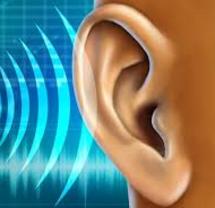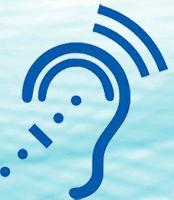Long Island (516) 731-5868 Queens (718) 641-3817
HARMONY
Hearing & Speech Center
 | ||||
Central Auditory Processing Disorder
This section will provide answers to the following questions:
• What is Central Auditory Processing?
What is Central Auditory Processing?
• What is Central Auditory Processing Disorder?
What is Central Auditory Processing Disorder?
• How is CAPD Diagnosed?
How is CAPD Diagnosed?
• What are the signs of CAPD?
What are the signs of CAPD?
• What causes a CAPD?
What causes a CAPD?
• What can be done for a child with CAPD?
What can be done for a child with CAPD?
• What should you do if CAPD is suspected?
What should you do if CAPD is suspected?
What is Central Auditory Processing?
Central Auditory Processing is the ability to perceive, understand, or interpret sound. To put it more simply, central auditory processing is "what we do with what we hear". Auditory processing is different from the ability to “hear" sounds or speech or to have a “hearing loss”. A hearing loss is usually the result of a problem with the peripheral auditory system. Central auditory processing involves cranial structures of the brain where the auditory message is interpreted and understood.
What is Central Auditory Processing Disorder (CAPD)?
Central Auditory Processing involves the ability to remember what is heard, sequence or recall what was heard in the exact order that the information was presented, follow directions appropriately or fill in missing pieces in order to complete the message. Central Auditory Processing Disorder (CAPD) may interfere with the individuals ability to analyze or make sense of the information received or heard. This processing deficit can interfere with speech & language skills, with learning, especially reading, writing & spelling. Consequently, when information is presented auditorily in school, the student with CAPD may ultimately experience serious difficulty understanding the lesson or the directions. These difficulties will impact on the individual’s academic success as well as social and emotional achievement.
How is CAPD Diagnosed?
A licensed Audiologist who has specialized training in the evaluation of individuals experiencing auditory processing difficulties is able to administer a battery of tests which are specifically designed to measure and identify areas of deficit. The test battery will be sensitive to a variety of areas such as:
1. Phonological Awareness - is the understanding that language consists of individual sounds (phonemes) which are connected or blended together in order to form spoken or written words. This awareness provides us with a fundamental precursor to reading. Children who have difficulty with phonologic awareness will most likely be unable to identify, or recognize similarities between words. These deficits can affect all areas of language including reading, writing, spelling, and understanding of spoken language.
Phonological Awareness - is the understanding that language consists of individual sounds (phonemes) which are connected or blended together in order to form spoken or written words. This awareness provides us with a fundamental precursor to reading. Children who have difficulty with phonologic awareness will most likely be unable to identify, or recognize similarities between words. These deficits can affect all areas of language including reading, writing, spelling, and understanding of spoken language.
2. Auditory Discrimination - is the ability to recognize differences in phonemes (sounds) allowing the individual the ability to identify words and sounds that are similar and different.
Auditory Discrimination - is the ability to recognize differences in phonemes (sounds) allowing the individual the ability to identify words and sounds that are similar and different.
3. Auditory Memory - is the ability to store and recall information which was presented verbally. Deficits with auditory memory will manifest in an inability to follow verbal instructions or recalling information from a story read aloud.
Auditory Memory - is the ability to store and recall information which was presented verbally. Deficits with auditory memory will manifest in an inability to follow verbal instructions or recalling information from a story read aloud.
4. Auditory Sequencing - is the ability to remember or recall the exact order that the information was verbally presented. For example, being able to remember the order of items on a list or the order of sounds in a word or syllable.
Auditory Sequencing - is the ability to remember or recall the exact order that the information was verbally presented. For example, being able to remember the order of items on a list or the order of sounds in a word or syllable.
5. Auditory Blending - is the process of putting phonemes (sounds) together to form words. For example, the individual phonemes “C”, “A", and “T” form the word “CAT”.
Auditory Blending - is the process of putting phonemes (sounds) together to form words. For example, the individual phonemes “C”, “A", and “T” form the word “CAT”.
6. Auditory Figure Ground or Tolerance - is the ability to focus on a “primary” auditory message in the presence of “competing” stimuli. For example, having the ability to listen to the teacher when other people are making noise in the hallway.
Auditory Figure Ground or Tolerance - is the ability to focus on a “primary” auditory message in the presence of “competing” stimuli. For example, having the ability to listen to the teacher when other people are making noise in the hallway.
7. Auditory Closure -is the ability to perceive the "whole" when parts are missing or to “fill in” missing auditory information.
Auditory Closure -is the ability to perceive the "whole" when parts are missing or to “fill in” missing auditory information.
When the test battery is completed and the results are reviewed, the Audiologist, as well as the Speech- Language Pathologist will be able to design a plan for therapeutic intervention. This plan may be designed to either improve skills such as reading, writing and spelling or to teach compensatory strategies which will help the individual to focus on the presented auditory information while ignoring the unwanted or extraneous stimuli for instance.
Based on the diagnostic test results as well as the age of the individual, therapy plans will be designed based on the specific needs of the person, since no two individuals experience the exact same auditory processing deficit in the same exact area. For example, one individual may demonstrate difficulty in the areas of phonological awareness and auditory memory. These deficits will most likely affect reading, writing and spelling. Another individual may experience difficulty with auditory figure ground or tolerance, and will have difficulty extracting the important part of the verbal message (primary) from the unimportant or competing signal.
What are the Signs of CAPD?
1. The child has difficulty paying attention, is easily distracted or appears to be
The child has difficulty paying attention, is easily distracted or appears to be
daydreaming.
2. The child demonstrates difficulty concentrating in the presence of background
The child demonstrates difficulty concentrating in the presence of background
noise.
3. The child has difficulty recalling or remembering information (verbal or auditory)
The child has difficulty recalling or remembering information (verbal or auditory)
previously heard or originally understood.
4. The child has difficulty following the sequence of events.
The child has difficulty following the sequence of events.
5. The child may have a limited vocabulary.
The child may have a limited vocabulary.
6. The child may be having difficulty in school and is performing below grade level,
The child may be having difficulty in school and is performing below grade level,
particularly, in reading, writing, and spelling.
7. The child may be displaying behavioral problems at home or in school.
The child may be displaying behavioral problems at home or in school.
8. The child may have difficulty following one, two or three step verbal instructions.
The child may have difficulty following one, two or three step verbal instructions.
9. The child may have difficulty with auditory discrimination (for example, confuses
The child may have difficulty with auditory discrimination (for example, confuses
"puppy” with "puffy”).
10. The child may have difficulty remembering simple routine things from day to day.
The child may have difficulty remembering simple routine things from day to day.
What causes a Central Auditory Processing Disorder?
Some suspected causes of CAPD are:
1. Hereditary disorder.
Hereditary disorder.
2. Maturational delay.
Maturational delay.
3. Neurological basis.
Neurological basis.
4. Secondary or related to auditory deprivation resulting from such things as
Secondary or related to auditory deprivation resulting from such things as
chronic ear infections.
What can be done for a child with CAPD?
The child with CAPD will need to learn strategies that will help in coping with difficult situations. Children with CAPD must be taught in a different way to compensate for poor auditory processing abilities.
The strategies must be used on a consistent basis in the child’s home, in the child’s school, and in all aspects of the child’s life in order to promote learning and improved academic performance, as well as to improve communication in social situations, and to reduce frustration levels which the child may be exhibiting.
What you should do if CAPD is suspected?
If you suspect that your child is having Central Auditory Processing difficulties contact our Center for more information. Our Center is staffed with New York State Licensed Audiologists and Speech-Language Pathologists who have specialized training and expertise in evaluating and treating children and adolescents with Central Auditory Processing Disorder and with Language Based Learning Disabilities.
Dr. Martha Burns, Speech-Language Pathologist, Speaks About Central Auditory Processing Disorder
Click here to join Long Island Loop Initiative (LILI) on Facebook. This group was formed to educate the public about the importance of hearing access through the installation of hearing loops everywhere.



